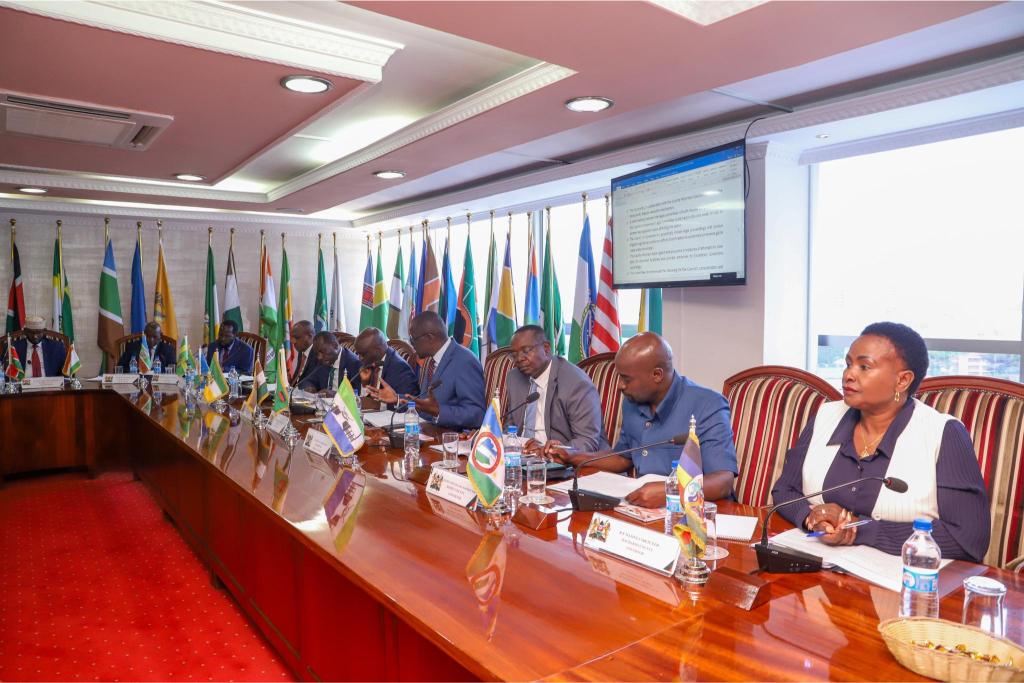Audit flags 32 counties over Sh10bn procurement irregularities

Nairobi County, led by Governor Johnson Sakaja, accounted for Sh3.3 billion in irregularities, while Kericho County, under Governor Eric Mutai, recorded Sh1.9 billion.
Thirty-two counties have been flagged for procurement irregularities amounting to more than Sh10 billion in the 2023/2024 financial year, with Nairobi and Kericho recording the highest questionable transactions.
In a report tabled by Auditor General Nancy Gathungu, Nairobi City County, led by Governor Johnson Sakaja, accounted for Sh3.3 billion in irregularities, while Kericho County, under Governor Eric Mutai, recorded Sh1.9 billion.
The audit found that contracts were awarded without verifying suppliers’ qualifications, in breach of the Public Procurement and Asset Disposal Regulations, 2020, which require due diligence to ensure only competent and reliable contractors are engaged.
“Review of the County Executives’ procurement records revealed that thirty-two (32) County Executives had various procurement irregularities amounting to Sh10,094,695,416,” reads the report.
It adds: “Use of direct procurement method without qualifications contrary to Section 91 of the Public Procurement and Asset Disposal Act, 2015 which provides that open tendering shall be the preferred procurement method for procurement of goods, works and services.”
Counties with minimal irregularities include Baringo (Sh6.8 million), Busia (Sh4.9 million), Meru (Sh2.3 million) and Vihiga (Sh2 million), while Trans Nzoia had none.
Other counties with flagged transactions are Kakamega (Sh531.5 million), Nyandarua (Sh445.2 million), Kisii (Sh364.1 million), Migori (Sh338.8 million), Samburu (Sh335.3 million), Machakos (Sh292.4 million), Narok (Sh273.4 million), Kiambu (Sh271.4 million), Kilifi (Sh243 million), West Pokot (Sh232 million), Uasin Gishu (Sh225.5 million), Tana River (Sh200 million), Lamu (Sh169.9 million), Nandi (Sh109.9 million), Isiolo (Sh104.4 million), Laikipia (Sh94.4 million), Nyeri (Sh76.7 million), Bomet (Sh65.8 million), Nakuru (Sh51.6 million), Elgeyo Marakwet (Sh16.5 million) and Wajir (Sh13.7 million).
The report highlights that procurement plans for the 2023/2024 financial year were not submitted by the June 30 deadline as required under Regulation 8 of the Public Procurement and Asset Disposal Regulations.
It also notes that some counties carried out procurement activities exceeding their budgets without supplementary budget approvals, violating Section 67(1) of the Public Finance Management (County Governments) Regulations.
In some cases, goods and services above set limits were procured without approval from the Public Procurement Regulatory Authority (PPRA), contrary to Section 66(3) of the Public Procurement and Asset Disposal Act, 2015.
“Regulation 5(1) of the Public Procurement and Asset Disposal Regulations, 2020 requires all procurement activities be based on an Approved Procurement Plan that aligns with the budget and operational needs of the entity,” the report states.
The audit also shows that in several counties, youth, women, and persons with disabilities received less than the legally required 30 percent of procurement opportunities under Section 157(2) of the Act.
Additionally, some counties failed to adequately advertise tenders, breaching Section 63(1), which mandates public advertisement to ensure transparency and competition.
The report flags instances where counties used the Request for Quotation method for procurements exceeding the Sh3 million threshold instead of open tendering, contrary to Section 45(3)(b) of the Act.
Seventeen counties were also cited for avoidable expenditures amounting to Sh1.4 billion, while 23 counties irregularly contributed a total of Sh79.8 million to the Council of Governors, contrary to Section 37 of the Intergovernmental Relations Act, 2012.
The law requires operational costs for structures created under the Act to be funded through the national government budget.
Wasteful spending included payments for court cases arising from county government actions and interest charges due to failure to meet contractual obligations.
Counties affected by such payments include Narok (Sh756.1 million), Kisii (Sh88.4 million), Kajiado (Sh79.1 million), Mombasa (Sh69.8 million), Nakuru (Sh66.5 million), Nyandarua (Sh51.8 million), Nandi (Sh49.2 million), Garissa (Sh41.2 million), Elgeyo Marakwet (Sh23.1 million), Uasin Gishu (Sh22.2 million), Siaya (Sh8.1 million), Mandera (Sh3 million), Embu (Sh2.9 million), Isiolo (Sh1.4 million), Trans Nzoia (Sh943,251) and Nairobi (Sh48,690).
